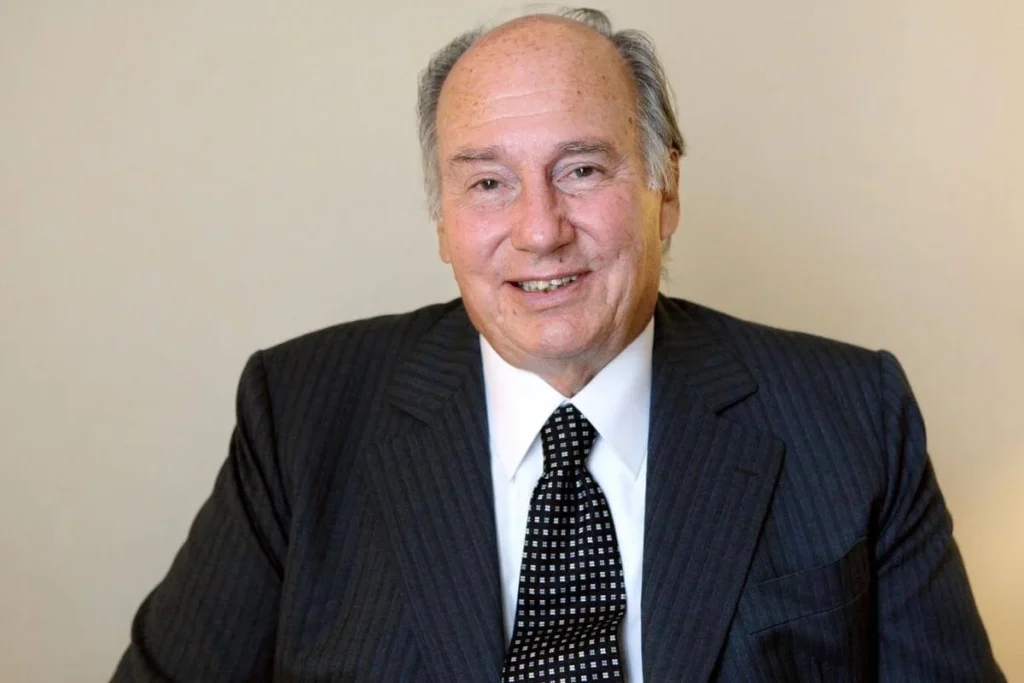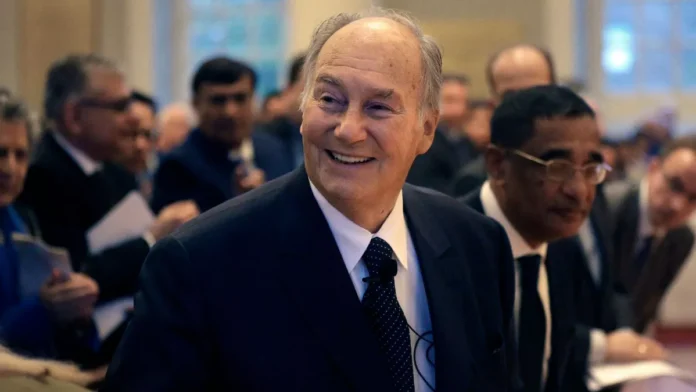Introduction
Aga Khan IV was an influential leader of the Ismaili Muslim community who seamlessly merged philanthropy with enterprise, shaping a legacy that transcended religious leadership. His contributions to economic development, global diplomacy, and social welfare made him one of the most impactful hereditary rulers of the modern era. In this comprehensive guide, we explore his life, leadership, and enduring legacy.
The Early Life of Aga Khan IV
Born as Prince Karim al-Hussaini on December 13, 1936, in Geneva, Switzerland, Aga Khan IV was destined for a life of leadership and responsibility. As a member of one of the most influential Muslim dynasties, he was exposed to diverse cultures and global affairs from an early age. His father, Prince Aly Khan, was a well-known diplomat and socialite, while his mother, Princess Tajuddawlah, was the daughter of an Italian aristocrat. This unique heritage gave him a broad, international outlook that would later influence his leadership.
Aga Khan IV received his early education at Le Rosey, an elite Swiss boarding school known for producing world leaders and royals. However, his academic journey took a more focused turn when he enrolled at Harvard University, where he specialized in Islamic history. This rigorous education provided him with a deep understanding of the historical, theological, and socio-political aspects of Islam, preparing him to lead the Nizari Ismaili Muslim community in a rapidly changing world.
His path to leadership was highly unconventional. Unlike other hereditary rulers, he did not inherit his title from his father. Instead, his grandfather, Aga Khan III, made a surprising decision to bypass his own son and appoint his grandson as his successor. In his will, Aga Khan III justified this by stating that “the rapidly changing world, shaped by scientific and technological advancements, required a young leader who had been raised in a modern era and could offer fresh perspectives on leadership and faith.”
Thus, in 1957, at the age of 20, Prince Karim al-Hussaini was formally declared the 49th Imam of the Nizari Ismaili Muslims, assuming the title of Aga Khan IV. This sudden transition placed immense responsibility on his shoulders, requiring him to not only act as a spiritual guide but also to lead his community through geopolitical shifts, including post-colonial transitions, regional conflicts, and economic challenges across multiple continents. Despite his youth, Aga Khan IV quickly established himself as a visionary leader, blending tradition with modernity in ways that would shape the future of the Ismaili community for decades to come.

A Leader Bridging Faith and Modernity
Aga Khan IV, the 49th hereditary Imam of the Nizari Ismaili Muslims, has profoundly redefined the role of religious leadership in the modern world by seamlessly intertwining faith with socio-economic development. His governance philosophy transcends the traditional boundaries of religious leadership, where he placed a strong emphasis on empowering his community through education, healthcare, and financial independence. His leadership has been characterized by a unique ability to balance the spiritual values of Islam with practical efforts aimed at improving the living standards of his followers and promoting global development.
In contrast to conventional religious leaders who may focus primarily on spiritual matters, Aga Khan IV has been an active participant in global economics. By positioning the Ismaili community as both spiritually grounded and economically empowered, he has fostered prosperity while ensuring that the community remains rooted in its faith. His vision has allowed for the flourishing of both religious and material aspects of life, with the welfare of his people being his foremost priority. The following aspects highlight his contributions:
- Economic Ventures: The Aga Khan Development Network (AKDN), founded under his leadership, stands as a powerful testament to his far-reaching vision. AKDN comprises a vast network of institutions and initiatives dedicated to improving quality of life through sustainable economic development. This includes projects focused on education, healthcare, infrastructure, and rural development. Through the AKDN, Aga Khan IV has successfully integrated humanitarian principles with practical economic activities, driving long-term social and economic progress across diverse regions.
- Philanthropy: Aga Khan IV’s commitment to humanitarian work has led to the establishment of numerous schools, universities, hospitals, and social service institutions across 35 countries. These institutions focus not only on the material well-being of individuals but also on fostering intellectual and spiritual growth. The expansion of such institutions has empowered thousands of individuals by providing access to education, healthcare, and other essential services, thereby uplifting entire communities and promoting a better quality of life globally. His philanthropic efforts have shaped the landscape of modern development, blending social responsibility with the values of the Ismaili community.
- Diplomatic Influence: Beyond his religious and philanthropic pursuits, Aga Khan IV has been a key figure in global diplomacy. His ability to maintain strong ties with world leaders and policymakers has allowed him to advocate effectively for global peace, stability, and development. He has worked tirelessly to address critical global issues, including poverty, conflict resolution, and interfaith dialogue. Through his diplomatic efforts, he has reinforced the role of religion in fostering peace and has demonstrated that faith-based leadership can play a pivotal role in addressing the world’s most pressing challenges. His involvement in international diplomacy has helped bridge divides between cultures, religions, and nations, further cementing his legacy as a leader of both faith and modernity.
Aga Khan IV’s leadership has redefined the intersection of faith and modernity. His profound influence stretches far beyond the Ismaili community, impacting global development, social welfare, and international diplomacy. By fostering a world where faith and progress are inextricably linked, he has become a guiding force for millions, embodying the true essence of leadership in the modern world.
Philanthropy and Development Initiatives
Aga Khan IV’s legacy is profoundly shaped by his unwavering commitment to philanthropy and development, areas where he has consistently demonstrated visionary leadership. Through the Aga Khan Foundation (AKF) and the Aga Khan Development Network (AKDN), he has spearheaded an array of transformative initiatives that have had a far-reaching impact on individuals and communities across the globe. His approach to philanthropy is not just about providing immediate relief but fostering long-term, sustainable development in regions that face socio-economic challenges. His humanitarian efforts focus on empowering people through education, healthcare, cultural preservation, and economic development, leaving a lasting impact on generations to come.

- Education: Aga Khan IV understood that education is the cornerstone of any society’s progress and well-being. To empower future generations, he placed a strong emphasis on building schools, universities, and other educational institutions. Through the AKF and AKDN, he has established a network of over 200 educational institutions worldwide. These schools not only offer quality academic education but also foster an environment where intellectual, social, and spiritual development are intertwined. With a particular focus on underserved communities, Aga Khan’s educational initiatives promote inclusivity and diversity, ensuring that all children, regardless of their background, have access to high-quality education. His efforts have produced generations of skilled, enlightened, and socially responsible individuals who contribute to the advancement of their communities and the world at large.
- Healthcare: Recognizing that health is a fundamental human right, Aga Khan IV has been a staunch advocate for healthcare access, especially in remote and underserved areas. Through the AKDN’s healthcare network, he has established hospitals, clinics, and medical centers that provide accessible and affordable healthcare to millions. These institutions focus on providing high-quality medical services while also training local healthcare professionals and building sustainable healthcare infrastructures. In addition to curative care, Aga Khan’s healthcare initiatives include disease prevention, maternal and child health, and public health campaigns, all aimed at improving overall well-being. His approach ensures that healthcare is not a privilege but a right that should be accessible to all, regardless of geographic location or socio-economic status.
- Cultural Preservation: Aga Khan IV has been a passionate advocate for the preservation of cultural heritage, particularly Islamic architecture. His initiatives have played a critical role in the restoration of historical landmarks, including mosques, schools, and other significant structures. These preservation efforts are not only about maintaining the beauty of the past but also about celebrating and safeguarding the cultural identity of diverse communities. Through the Aga Khan Trust for Culture, he has overseen the restoration of architectural masterpieces in countries such as Afghanistan, Syria, and India. By reviving these landmarks, Aga Khan IV has helped protect important aspects of Islamic and regional heritage, contributing to the cultural richness and history of these nations. Furthermore, his promotion of Islamic architecture emphasizes the importance of blending traditional craftsmanship with modern innovations, ensuring that cultural practices evolve while maintaining their essence.
- Economic Development: Aga Khan IV’s commitment to sustainable economic development has been a transformative force in uplifting communities worldwide. He has worked tirelessly to create a robust framework for economic development that focuses on entrepreneurship, job creation, and the establishment of sustainable businesses. Through the AKDN, he has invested in a wide range of economic ventures, from agriculture to infrastructure, that not only provide jobs but also support local economies. His economic development initiatives are designed to stimulate growth while ensuring that the benefits are felt by the most vulnerable communities. For example, he has supported the development of microfinance institutions that provide small loans to entrepreneurs in developing regions, enabling them to establish businesses and improve their livelihoods. Furthermore, the AKDN’s investments in sectors such as tourism, energy, and infrastructure have created sustainable economic opportunities that improve quality of life while promoting environmental stewardship.
Aga Khan IV’s philanthropic and development initiatives represent a holistic and integrated approach to humanitarian work. His contributions have empowered millions through education, healthcare, cultural preservation, and economic development. By focusing on sustainable, community-driven solutions, he has created a lasting legacy that continues to inspire and uplift people around the world. His efforts exemplify the belief that development is not just about growth, but about fostering human dignity, improving quality of life, and preserving the rich cultural heritage that defines communities.
Wealth and Controversies
Despite his philanthropic image, Aga Khan IV was often scrutinized for his extravagant lifestyle. Owning private jets, luxury yachts, and an island in the Caribbean, critics questioned the coexistence of his immense wealth and humanitarian work. However, he maintained that financial prosperity enabled him to better serve his community.
One of the most significant controversies emerged in 2017, when Canadian Prime Minister Justin Trudeau faced ethical scrutiny for accepting the Aga Khan’s hospitality. The incident highlighted the blurred lines between personal relationships and political influence.
A Lasting Legacy
Aga Khan IV’s impact extends far beyond religious leadership. His efforts in economic development, philanthropy, and global diplomacy continue to shape communities worldwide. As the 49th Imam of the Ismaili Muslims, he upheld a unique leadership style that balanced faith, progress, and modernity.
His passing marks the end of an era, but his institutions and contributions will continue to influence generations to come.
Conclusion
Aga Khan IV leaves behind a multifaceted legacy, proving that religious leadership can harmoniously integrate with economic and social progress. His work through the Aga Khan Development Network and various philanthropic initiatives ensures his influence will be felt for years. As the world reflects on his contributions, his vision for a prosperous and united global community remains an enduring inspiration.


